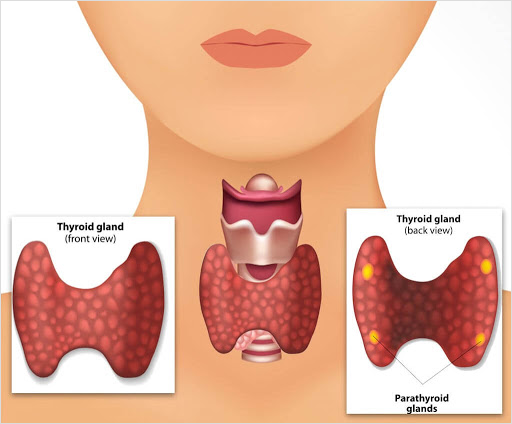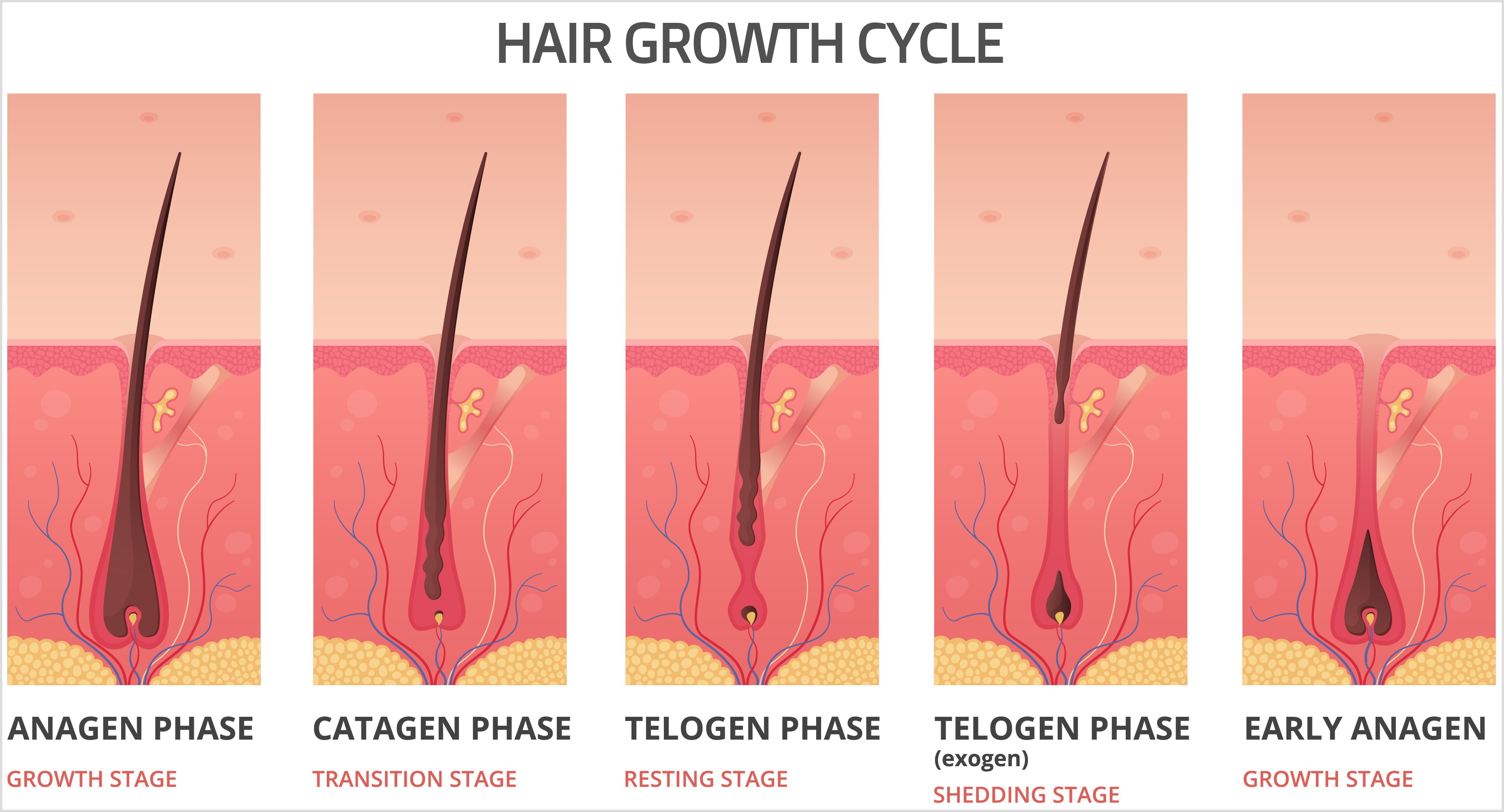Hair loss can be caused by many reasons, one of them is having a medical condition; among them, one of the most often related to alopecia is thyroid disease. With that said, it’s very important to first learn about the different types of thyroid disorders, what causes them, and what their symptoms are in order to understand how they are related.
Types of Thyroid Disorders
The 2 most common types of thyroid disease are:
-
Hyperthyroidism
Hyperthyroidism is a condition that mostly affects women, and it consists in the overproduction of thyroxine by the thyroid gland, which accelerates your body’s metabolism, causing several symptoms such as:
- Unintentional weight loss
- Rapid heart rate (over 100 beats per minute)
- Arrhythmia
- Heart palpitations
- Increased appetite
- Nervousness, anxiety and irritability
- Fine trembling in hands and fingers
- Sweating, increased sensitivity to heat
- Changes in menstrual patterns
- More frequent bowel movements
- An enlarged thyroid gland (goiter)
- Fatigue, muscle weakness
- Difficulty sleeping
- Thinning skin
- Brittle, fine hair
- Graves’ ophthalmopathy (dry, red, swollen, protruding eyes, excessive tearing or discomfort, and increased sensitivity to light). It may include blurry or double vision and reduced eye movement.
Several treatments for hyperthyroidism are available; sometimes, these involve surgery to remove all or part of your thyroid gland. Be sure to check in with your doctor if you experience any of these symptoms.

2) Hypothyroidism
Basically, it’s the opposite of hyperthyroidism. Affecting most middle-aged women, hypothyroidism is a condition in which the thyroid gland doesn’t produce enough triiodothyronine (T3) and thyroxine (T4) hormones, causing the metabolism to slow down. The symptoms of hypothyroidism tend to develop slowly over the years, and they include:
- Fatigue
- Increased sensitivity to cold temperatures
- Constipation
- Dry skin
- Weight gain
- Puffy face
- Hoarseness
- Muscle and joint weakness, aches, tenderness, and stiffness
- High blood cholesterol
- Heavier or irregular menstrual periods
- Thinning hair
- Slowed heart rate
- Depression and impaired memory
- Enlarged thyroid gland (goiter)
Treatment with synthetic thyroid hormone is safe and effective once you and your doctor find the right dose for you. As I always recommend, don’t hesitate to contact your doctor if you have any of the symptoms listed above.
So, What Is The Link Between Thyroid Disease And Hair Loss?
Severe and prolonged hypothyroidism and hyperthyroidism can cause hair loss (often involving a diffuse pattern over the scalp), which usually becomes apparent several months after the onset of the thyroid disease. Hair growth has a long cycle (it grows approximately 0.3mm per day); hence many people only start to lose their hair after their condition undergoes treatment. Paradoxically, this makes the thyroid medication to be erroneously blamed, leading to the withdrawal of treatment, which may worsen the hair loss.
Regrowth is usual with successful treatment of the thyroid disorder, though it will take several months; be aware that growth may not be complete and that the new hair may differ in texture and color. Most cases of scalp and eyebrow hair loss caused by thyroid disorders are temporary, so be patient as the medication stimulates your hair to regrow over time.

Treating Thyroid Disease and Hair Loss
Once you get your thyroid disease under control, the thyroid hormone levels should regulate, meaning healthy hair growth will take place. The good news is that if you feel uncomfortable with how your hair looks while treatment is underway, you can try different options, such as a hair transplant or hair biostimulation therapy.
Want to know what option may be best for you? Schedule a FREE online consultation and talk to one of our hair specialists in Tijuana today!








